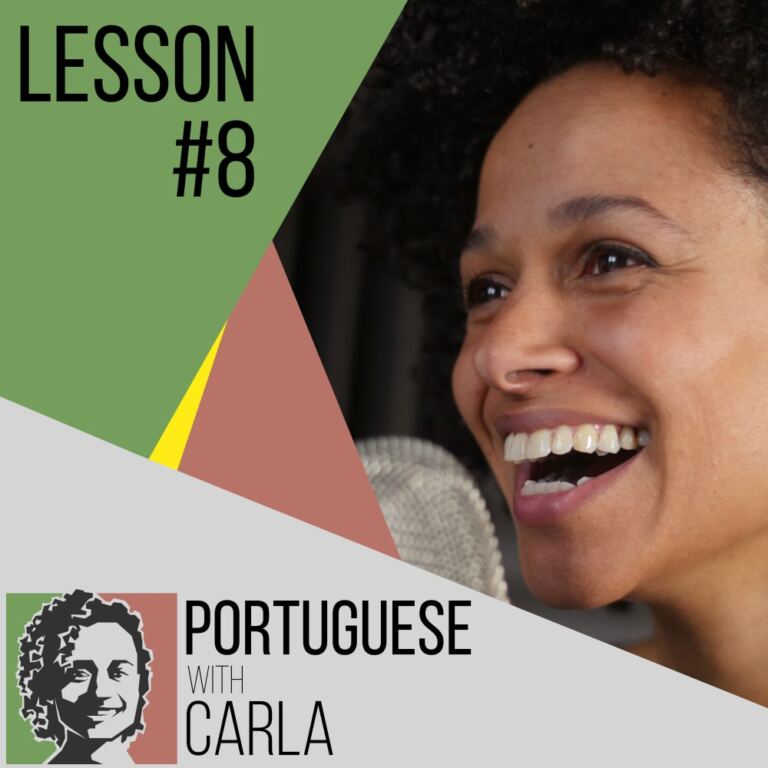Your Travel Guide for Portugal: Insider Tips and Expert Advice
Would you love to visit Portugal but do not know how to start organizing your trip? Do you wonder about the best time to go and what activities you can do? Is your goal to enjoy the country but go beyond regular tourist attractions?
This post is for you if you answered yes to any or all of the questions above. We have curated the best insider tips for an unforgettable journey. From bustling cities to serene beaches, Portugal offers diverse experiences. Immerse yourself in rich history and vibrant culture. Savor mouthwatering cuisine and world-class wines.
Explore ancient castles and picturesque villages. Hike through stunning landscapes or relax on golden sands. Portugal’s warm hospitality welcomes all travelers. Whether you are a budget backpacker or a luxury seeker, there is something for everyone. Uncover local secrets and off-the-beaten-path gems. Learn to navigate like a local and make the most of your visit.
This comprehensive guide covers everything from transportation to accommodation. Get ready to experience Portugal’s charm, beauty, and authenticity. Your Portuguese adventure starts here!
Planning Your Trip to Portugal
One of the best ways for international tourists to prepare to visit Portugal is by learning Portuguese. Discover your ticket to fluency with The Journey – a language program like no other! Learn European Portuguese as the natives speak it through interactive and video-based lessons. Click HERE to learn more!

Best Time to Visit Portugal
The climate in Portugal offers distinct advantages throughout the year. Spring and fall are prime seasons for visitors. You will find fewer crowds from March to June and September to mid-October. During the shoulder season, whether Spring or Autumn, prices are lower and temperatures are comfortably warm.
Summer brings peak tourist season. June to September sees busy streets and beaches. Historical sites are crowded and accommodation prices soar. But the weather is perfect for beach lovers. For example, during the summer months, the Algarve region is one of the most popular. Travelers can enjoy the white sand beaches and engage in water sports.
Winter offers a different experience. November to February is the low season. Temperatures cool down and tourist numbers dwindle. This period is ideal for budget travelers. This way, you can save money while enjoying places of historical interest. Additionally, you will have popular attractions to yourself.
How to Pick Your Season for Visiting Portugal
Each season has its charm. Spring brings blooming flowers and mild weather. Fall offers harvest festivals and pleasant temperatures. Summer guarantees sunshine and a lively atmosphere. Winter showcases a quieter, more authentic Portugal.
Consider your preferences when choosing. Do you prefer bustling energy or peaceful exploration? Are you after beach time or cultural experiences? Your budget also plays a role. High season means higher costs. Low season offers better deals.
Weather-sensitive activities may influence your decision. Hiking and road trips are best enjoyed in spring or fall due to the mild weather and scenic beauty. Beach days are perfect in summer. Winter is ideal for city exploration and indoor attractions. Always check local events as festivals can affect crowds and prices year-round.
How Long to Spend in Portugal
Are you planning your Portugal trip? Consider the length carefully. A week suffices for a taste of mainland Portugal. You can visit Lisbon, Porto, and the Douro Valley. Want more? Extend to ten days for a deeper dive.
For the best Portuguese experience, aim for 2-3 weeks. This way, you get to visit the Madeira and Azores islands. First-timers might prefer to start with a 7-day itinerary. History buffs and culture enthusiasts will prefer ten days. Adventure seekers can opt for a 14-day countrywide road trip.
Each option offers unique experiences. Choose based on your interests, budget, and available time. You can use local transportation for day trips that will allow you to visit the surrounding region. For example, a train ride from Lisbon to Sintra takes about an hour, making it convenient and worthwhile.
Getting to and Around Portugal
Getting to Portugal is easy, with multiple travel options within the country. Flights connect the main cities, and car rentals offer flexibility. Additionally, buses and trains link various regions. Learn more about getting to and around Portugal and choose the methods that suit your itinerary and budget.
Flying to Portugal
Portugal is easily accessible by air. Many international carriers offer direct flights. TAP Air Portugal is the national airline and it provides some of the most comprehensive flight options. It also covers all Portuguese destinations, including mainland Portugal, Madeira, and the Azores.
Check the FlyTAP website for international flights to Portugal. It is also a good resource for flights to the islands. Booking in advance often secures better prices, especially during peak travel seasons. You can use popular flight comparison sites to find the best deals.
Some budget airlines also serve Portugal. They can offer competitive prices on European routes. Remember to factor in baggage fees when comparing costs. Airport transfers are generally efficient in Portugal. Public transport or taxis can take you to your final destination.
Car Rental in Portugal
Car rental is another service you must book early to avoid high prices during peak season. You can usually find competitive rates for Portuguese car hire. Depending on the season you choose to visit Portugal, booking in advance has two main benefits. First, it saves you money. Second, it ensures you get a car.
The roads in Portugal are generally good. Driving allows you to explore the entire country at your own pace. With a car, you can visit remote villages and scenic spots that are less accessible through public transportation. Remember to check your rental agreement carefully. Look for hidden fees or restrictions and consider insurance options for peace of mind. Additionally, keep in mind that automatic cars are less common in Portugal.
Public Transportation in Portugal
Portugal has a well-developed public transportation system, making it easy to get around without a car. The country boasts an extensive network of buses, trains, and metro lines in the biggest cities, ensuring you can easily explore.
- Metro: Both Lisbon and Porto have efficient metro systems covering most areas of the cities. A single ticket costs around €1.80, and you can buy a rechargeable card for added convenience. The metro is a quick and reliable way to explore Lisbon and Porto.
- Buses: Bus companies like Rede Expressos and FlixBus operate throughout Portugal, connecting cities and towns. Tickets can be purchased online or at bus stations, making it simple to plan your rides. Buses are a viable option for reaching destinations not served by the train network.
- Trains: Comboios de Portugal (CP) is the national railway company. It offers services between major cities and scenic routes through the countryside. Tickets are available online or at train stations. Traveling by train is a comfortable way to see the country.
- Taxis and Ride-hailing: Taxis are widely available. But ride-hailing apps like Uber and Bolt are also viable options for popular destinations. These services offer a convenient and often cost-effective way to get around. You can use them for short trips or when public transport is less frequent.
Accommodation in Portugal
Discover Portugal’s diverse accommodation options. From luxurious hotels to unique stays, there is something for every traveler. Immerse yourself in local culture with carefully chosen lodgings. Experience comfort, authenticity, and unforgettable hospitality.
Hotels and Resorts
Portugal offers affordable accommodation options in and outside the big cities and tourist hotspots. Regardless of your budget, you can find good quality choices. Booking.com is a reliable platform for hotels and private rentals.
Consider staying in small towns for authenticity. Óbidos, Sintra, and Guimarães are excellent options. These locations provide a more genuine Portuguese experience. You will find unique lodgings in historic buildings and local guesthouses that offer personal touches.
Boutique hotels blend comfort with character. In coastal areas, you can book beachfront apartments in luxury apart-hotels. Mountain regions boast cozy chalets and there is even a ski resort in Serra da Estrela.
Unique Accommodations
Pousadas are a local accommodation option offering stays in historic buildings. These converted monasteries and castles provide unique experiences. Hostels cater to budget travelers with social atmospheres. Many hostels offer private rooms alongside dormitories.
Quintas (Farms) are rural estates in the rural and wine regions. They offer a taste of Portuguese country life usually near a small town inland. Alojamento local refers to locally owned guesthouses and apartments. These provide authentic stays in residential areas.
Eco-lodges are emerging for environmentally conscious travelers. They offer sustainable accommodations in natural settings. Then, there are unique accommodation options depending on the region. For example, houseboats along the Douro River provide floating accommodations. Beach huts in the Algarve offer rustic seaside stays and lighthouse hotels dot the coast for dramatic ocean views.
Exploring Portugal
The Journey is your best resource to learn Portuguese and get a glimpse of what is expecting you in Portugal. Visit great beaches and climb impressive cliffs in this course based on an original feature film produced by natives in the country. Are you ready to reach fluency? HERE is your 7-day free pass to get started!
Learn European Portuguese the Instinctive Way!
For the last decade, we’ve been working on putting together the best possible European Portuguese course. After much research, feedback from our students, and several iterations, we think we’ve got it! 😉
At the base of it all is a sound conviction that languages are better learned instinctively, so the process needs to be engaging, varied, and enjoyable. Throughout, we used scientifically proven techniques to help you master pronunciation, phrase construction, oral understanding, grammar, and all the necessary bits to get you to fluency. And still, the whole thing is presented as an adventure. It’s a course like no other. Click the button below to see for yourself!
Portugal Highlights
Portugal is a treasure trove of experiences. Lisbon and Porto are must-visit cities. The Douro Valley offers stunning landscapes. Coimbra, a UNESCO World Heritage Site, boasts a rich history and cultural significance. Serra da Estrela mountains hide charming villages.
To visit more places, a road trip is the best way to explore. Stop at quaint towns along your route and taste local cuisine in small eateries. Visit historic monuments and museums, and enjoy breathtaking viewpoints.
Interact with friendly locals. Portugal caters to all interests. History buffs, nature lovers, and foodies will all find joy here. Plan your itinerary carefully to make the most of your visit.
A Look at The Portuguese Regions
Mainland Portugal offers diverse experiences. Hiking trails wind through rugged coastlines, and mountains and scenic valleys beckon road trippers. The landscape is perfect for outdoor enthusiasts.
Central Portugal is one of the most popular regions. Lisbon, the capital, is a beautiful city with plenty to do. The small town of Nazaré is world-famous for its gigantic waves, perfect for surf enthusiasts. Inland, you will find stunning vineyards and natural landscapes full of trails to explore.
Top places to visit in Lisbon – What the locals say
Northern Portugal offers a perfect blend of culture, history, and gastronomy. Porto is famous for port wine. The Douro Valley showcases terraced vineyards, and Braga boasts impressive baroque architecture. Guimarães, the first capital of Portugal, is rich in history. The local cuisine is hearty and flavorful. Seafood and meat dishes dominate local menus.
The Algarve in southern Portugal is a coastal paradise. It is a haven for sun-seekers and nature admirers, with unique rock formations dotting the coastline. The incredible beaches there offer stunning scenery and allow for activities like surfing and sunbathing. Golf courses attract sports lovers.
The Azores and Madeira are island gems. They are ideal for solo female travelers but also perfect for couples and families. Natural beauty abounds there, and outdoor activities are plentiful. Locals welcome visitors warmly.
Outdoor Activities and Adventures
Portugal is a paradise for outdoor enthusiasts. It has a stunning coastline, mountains, and forests offering many activities and adventures.
- Hiking: Portugal has many hiking trails, including the famous Rota Vicentina. The diverse landscape offers something for every level of hiker. Explore coastal paths with breathtaking views of the Atlantic Ocean or mountain trails in the Serra da Estrela.
- Surfing: the Portuguese west coast is renowned for its consistent surf. It boasts popular spots like Nazaré and Peniche attracting surfers worldwide. Whether you are a seasoned pro or a beginner, you can take a lesson or rent a board to catch some waves. There is nothing like the thrill of surfing in one of the top European destinations.
- Cycling: Portugal has a growing cycling scene, with many bike paths and scenic routes. Rent a bike to explore the countryside, or take a guided tour to discover local villages and picturesque landscapes. Cycling is a fantastic way to see the country at your own pace.
- Whale Watching: The Azores and Madeira are popular spots for whale watching. Many tour operators there offer guided tours. These islands provide a unique opportunity to see these magnificent creatures in their natural habitat, making for an unforgettable adventure.
Traditional Portuguese Cuisine
Portuguese cuisine is a delight for food lovers. It is known for its fresh seafood, from seabass and sardines to delicious shellfish. The famous Pastéis de Nata is a creamy custard tart, crispy and unmissable.
Local markets are treasure troves of flavors. They offer a glimpse into authentic Portuguese food culture. Bacalhau (Codfish) is a popular ingredient, and there are dozens of ways to cook it. Grilled sardines are a summer favorite. When visiting local markets, try fresh seafood and pick up regional items like ceramic swallows as souvenirs.
Caldo Verde is a hearty kale soup topped with slices of cured sausage. Pork dishes are common inland, while seafood dominates coastal menus. Portuguese olive oil enhances many dishes, and fresh bread accompanies most meals. Cheese lovers will enjoy Serra da Estrela cheese.
Portuguese wines complement the cuisine perfectly. Port wine from the Douro Valley is world-renowned and perfect for sipping after a meal. Plus, remember to try the Vinho verde, a unique young wine from the Northern regions.
Safety and Money
Portugal is renowned for its welcoming atmosphere. However, as with any travel, it is essential to be informed. Understanding how to stay safe and manage your money effectively will enhance your Portuguese adventure.
Thus, our Portugal travel tips would not be complete without a note on security and money. Explore some basic aspects of safety and finances for visitors to this beautiful country.
Staying Safe in Portugal
In 2023, Portugal ranked as the 7th safest country globally. It boasts low crime rates, so travelers can usually feel secure here. However, pickpocketing can occur in crowded places. Thus, you be cautious and alert in tourist areas and transportation.
Keep your valuables close and use hotel safes when available. Plus, be wary of common scams targeting tourists. Trust your instincts. If something feels off, it probably is. Avoid walking alone late at night and stick to well-lit areas after dark. Besides, do not leave drinks unattended in bars.
Be cautious when using ATMs as you would in your home country. Cover your PIN and be aware of your surroundings. Additionally, you can learn basic Portuguese phrases. They can help in unexpected situations.

Money and Budgeting
Portugal uses the Euro. Although ATMs are plentiful, you should always carry some cash for small purchases. For example, keep small bills for markets and cafes. Remember that bargaining is not common in Portugal, and prices are fixed.
Tipping is not mandatory, but the locals appreciate it. Besides, keep in mind that currency exchange rates fluctuate. Check current rates before your trip, and avoid exchanging money at airports, as they often have poor rates.
Instead, use bank ATMs for the best rates. Look for signs saying Multibanco or Caixa automática (ATM). Credit cards work well in cities, but establishments in smaller towns may prefer cash. Inform your bank before traveling to prevent card blocks.
Budgeting
Before booking everything for your trip, take some time to budget wisely. Consider accommodation, transportation, and activities. Include daily meals and define an amount to spend on souvenirs. Additionally, budget extra for tours and attractions as many charge entry fees.
Costs also vary by travel style. During off-peak seasons, for example, backpackers can manage 45 EUR daily, with hostels and basic meals. Mid-range travelers need about 125 EUR, including comfortable hotels and restaurant dining. Luxury seekers should plan for 235 EUR or more for high-end accommodations and gourmet experiences.
Insider Tips: Your Travel Guide For Portugal
Compared to other European countries, cities like Lisbon and Porto in Portugal stand out for their charm. They have unique streets and characteristics that make exploring on foot a delightful experience. For a memorable evening, consider a sunset tuk-tuk ride.
These insider tips enhance your Portuguese adventure, allowing for a more immersive experience. In your trip to Portugal, you only need to decide what type of tourist you want to be. Portugal delivers whether you are drawn to historic sites, beautiful beaches, or vibrant city life.
With careful planning and these local insights, your journey through this captivating country will be unforgettable. The local blend of tradition and modernity with its warm hospitality ensures a rewarding travel experience.
Want a more detailed, season-by-season guide to Portugal? Read these:









